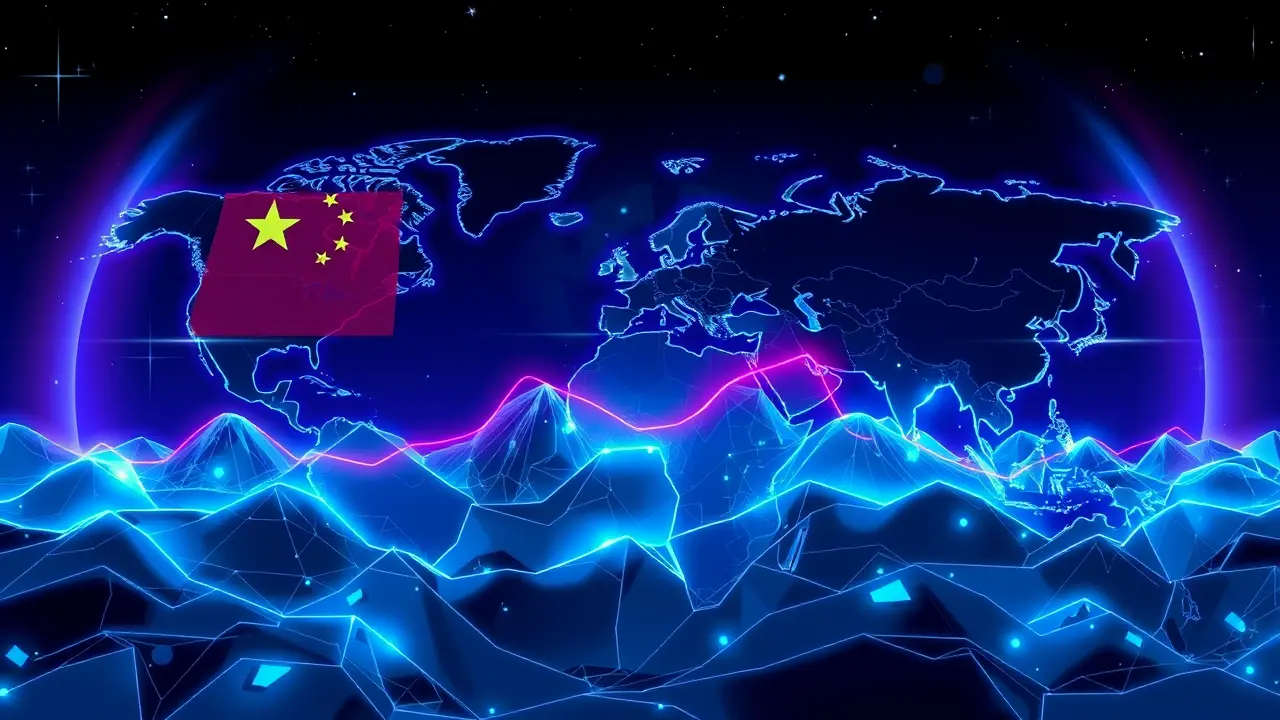
Hottest
Politicssanctions & tradeTrade Deals
China's Economic Race to Surpass the United States
OL
Olivia Scott
1 day ago7 min read
The global economic landscape is witnessing a high-stakes race of historic proportions, with China's Gross National Income per capita charting a steady, impressive ascent that suggests the nation has successfully navigated the perilous middle-income trap—a feat many emerging economies fail to accomplish. This sustained growth, however, merely sets the stage for a far more complex and daunting challenge: the economic equivalent of the Thucydides Trap, where a rising power's trajectory inevitably collides with the strategic containment efforts of an established hegemon.For decades, China's economic engine, fueled by state-directed investment, manufacturing dominance, and technological ambition, has closed the gap with the United States at a breathtaking pace. Yet, this very success has triggered a decisive pivot in Washington, manifesting in a bipartisan consensus for strategic competition.We are now observing a multi-front campaign of tariffs on a vast range of goods, stringent export controls targeting critical sectors like advanced semiconductors, and executive orders scrutinizing outbound investments, all designed to constrict China's access to the technologies and markets essential for leapfrogging into high-income status. The Federal Reserve's monetary policy maneuvers, while domestically focused, have profound global spillover effects, influencing capital flows and debt dynamics that can either accelerate or hinder China's financial ambitions.Meanwhile, Beijing is countering with its own playbook: aggressive subsidization of its 'champions' in green energy and electric vehicles, a relentless push for semiconductor self-sufficiency, and the strategic deployment of the Belt and Road Initiative to create alternative economic ecosystems. The core question for analysts and investors tracking Wall Street and macro-economic indicators is not merely if China's GDP will numerically surpass that of the U.S. —a milestone that now appears more uncertain—but whether it can achieve qualitative supremacy in innovation, global financial influence, and the setting of international technical standards.The incumbent power, the United States, is leveraging its deep capital markets, its control over the global financial plumbing via the dollar, and its network of allied nations to mount a formidable defense. The consequence is a fragmented global economy, a phenomenon often termed 'slowbalization' or 'friend-shoring,' where supply chains are re-engineered along geopolitical lines, creating inefficiencies and inflationary pressures.This economic cold war carries immense stakes; failure for China to break through this containment could see it plateau as a perpetual number two, its demographic headwinds and debt overhang limiting its potential, while success for the U. S.is not guaranteed and comes at the cost of higher prices for consumers and a less integrated, and therefore less efficient, global market. The data points from quarterly GDP reports, manufacturing PMIs, and technology adoption rates will be the scorecard for this protracted contest, a race that will define the balance of power for the remainder of the 21st century.
#hottest news
#China
#United States
#economic competition
#middle-income trap
#Thucydides trap
#GNI per capita
#global economy
Stay Informed. Act Smarter.
Get weekly highlights, major headlines, and expert insights — then put your knowledge to work in our live prediction markets.
Comments
It’s quiet here...Start the conversation by leaving the first comment.
© 2025 Outpoll Service LTD. All rights reserved.